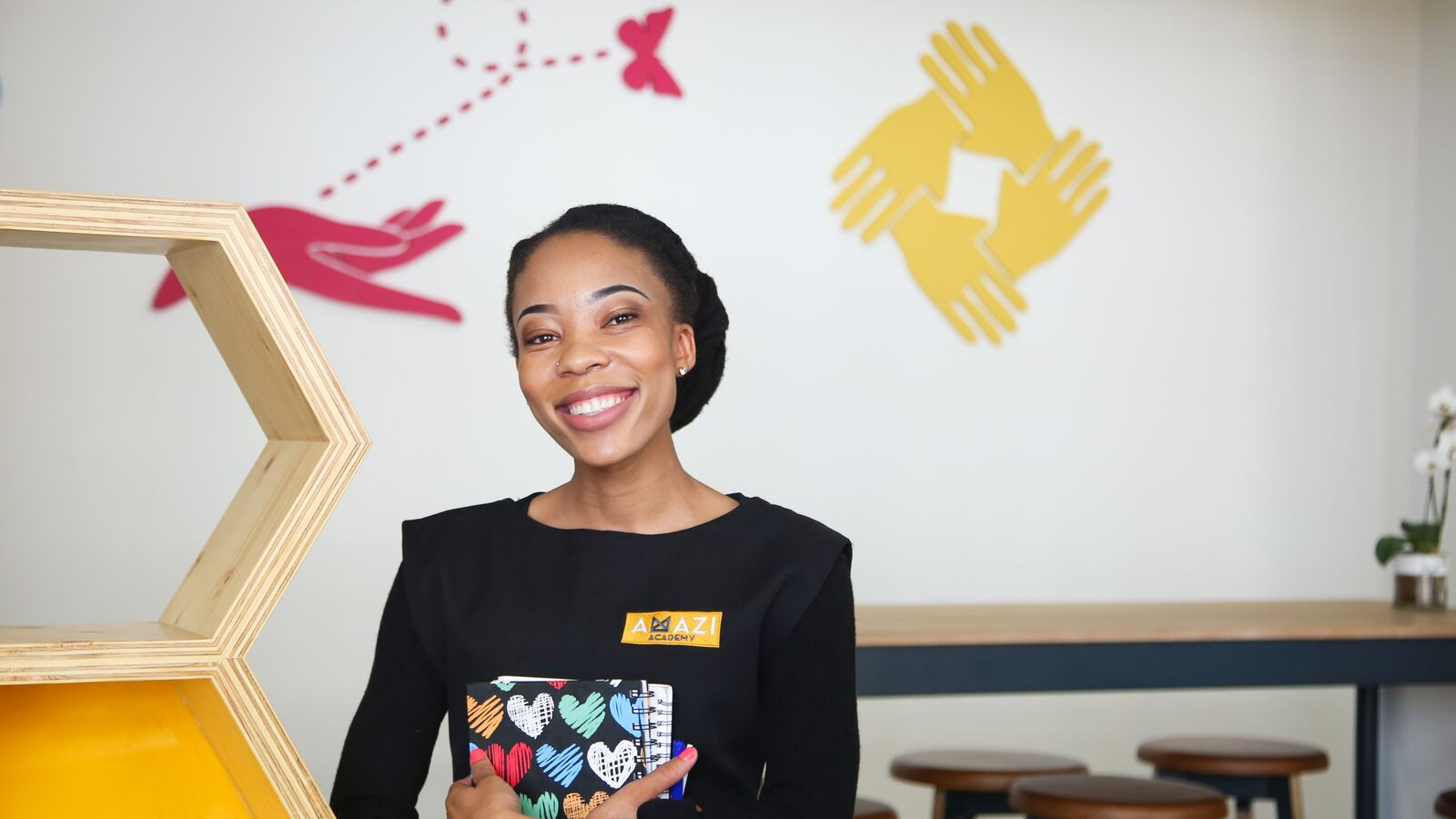More than half of young adults in South Africa do not have the opportunity or skills to access employment opportunities — or earn the income needed for basic human survival. With COVID-19 and the resulting national lockdown, unemployment continues to climb as most businesses must remain closed. This adds pressure for a significantly large number of young adults who are already living in poverty, with few organizations able to offer short- or long-term support.
My role at the Michael & Susan Dell Foundation focuses on working with partners that not only provide jobs for young adults, but create opportunities where they can thrive and grow in a career. When the news of COVID-19 started circulating, I was immediately concerned for the young adults our partners serve every day.
Creating pathways to prosperity
I’m grateful for partners like AMAZI that were innovating even before COVID-19 to ensure women living in poverty have meaningful opportunities in South Africa’s growing beauty industry. Through a unique model that incorporates the nonprofit AMAZI Beauty Academy and the for-profit Nail & Beauty Bars, AMAZI equips women with training and marketable skills they can use to earn a living, create savings, and flourish in careers as nail technicians. The program has trained 141 women since inception and 89 percent have been placed in the world of work, allowing them to be economically active. The business model provides opportunities for unemployed, marginalised women to become part of an aspirational industry.
With the AMAZI Academy and stores closed due to the national lockdown, the team pivoted quickly to ensure the skills, momentum, and enthusiasm of the women in training remained high. They created a new online model — a gaming platform combined with WhatsApp — to share daily worksheets and move Academy students through the curriculum as planned.
Women with jobs in AMAZI stores also began online development to refresh their skills. The AMAZI team created tools for coaching, self-awareness, and self-development to maintain a strong sense of community, a positive mindset, and the emotional connections they knew their community needed. AMAZI plans to maintain the new online instruction format after the country’s emergence into the new normal, as it will allow them to scale their training programme.
While the learning and training has not stopped during the national lockdown, the loss of income during this time has been detrimental to maintaining the basic needs of both the women in the academy and those working in the stores – many of whom are mothers. AMAZI has been able to secure additional funding from existing funders to help support the women with emergency stipends during this time.
Looking to the future
The AMAZI team remains proactive, positive, and more resilient than ever despite the growing uncertainty facing the beauty industry, among many other sectors. As AMAZI reorients to remain viable and sustainable, the team will look to secure additional funding, create a pool of strategic resources, re-stabilise, and institute new initiatives to continue its growth trajectory.
The type of adaptation and innovation shown by AMAZI provides the opportunity for even more women— many who thought a life beyond poverty was completely out of reach — to thrive, well into the future. I am thankful to the AMAZI team for their leadership and care for the women in the program during this unprecedented time.
